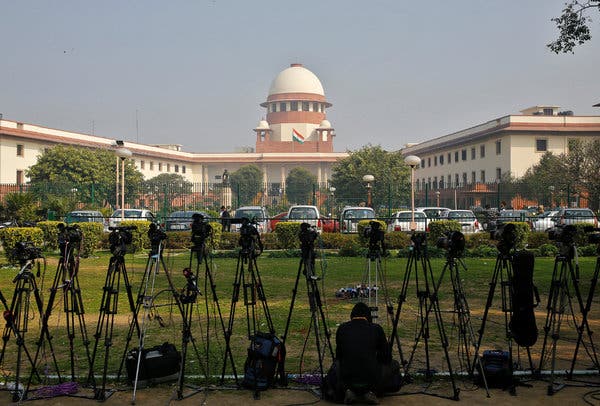How young poets from Kashmir are creating a parallel poets’ society with online mushairas
Srinagar: In 2019, 25-year-old Zeeshan Jaipuri, along with three of his friends, was in the middle of launching an innovative website called ‘The Kashmir Tales’, dedicated to preserving Kashmiri and Urdu literature.
However, the revocation of Article 370 in Jammu and Kashmir on 5 August, and the subsequent communication blackout imposed on the region, derailed their plans.
When broadband internet was finally restored in March this year, Jaipuri, who is a poet himself, decided to restart the project. Despite erratic and low-speed internet in the Valley, which was often shut down due to law and order situations, the team was able to finally launch the website.
Aside from Kashmiri, Urdu and English poems, the website also hosts hundreds of young and aspiring poets from the Valley, who often don’t find space on mainstream platforms. The core team of ‘Kashmir Tales’ include Asif Bhat, Jalees Hyder and web developer Syed Burhan, aside from Jaipuri.
The website’s popularity also got an unlikely boost during the Covid-19 lockdown after they began airing online mushairas or poetry symposiums.
“Initially, we used to do mushairas among our friends. Our idea was to make it a larger exercise and invite young aspiring poets as well as seniors so we, the younger lot could learn from the veterans. But all our plans came to a halt. In such a scenario holding online mushaira came as a relief,” said 21-year-old Bhat, co-curator of the website.
Keeping poetry alive within internet restrictions and lockdown
Soon after the lifting of the lockdown that was imposed post the revocation of Article 370, the Kashmir Valley was put under yet another lockdown on 24 March to arrest the spread of the coronavirus infection.
However, there was a key distinction this time — internet connection, however feeble, was still available. And Jaipuri, along with his team decided to capitalise on this to continue “their movement”.
“I have been associated with literature since childhood. I have a family history in poetry. My grandfather, Akbar Jaipuri sahab, a famous Kashmiri poet, and I would often sit in mushairas that were held at home. After his passing away, the mushairas continued at home, only that they were being held in his memory. My love for poetry only grew which has finally brought me where I am,” said Jaipuri, who is pursuing his Masters in English literature from the University of Kashmir.
The hardest job in the team fell to Burhan, the site’s web developer, as working within the bandwidth restrictions in Jammu and Kashmir has been no easy feat. He has to navigate the internet shutdowns and low speed to keep the website up and running.
The content of the website has also been growing. Graduating from poetry and prose, ‘The Kashmir Tales’ now has 13 categories under its ‘Story’ section. These include prose across genres — short stories, fiction, horror, mythology, thrillers and so on.
“We want to keep people engaged and there is a lot of interest in Kashmir for such content, both reading and writing. In the last 10 days we had more than 1,000 page views not only from Kashmir but from various countries like the United States, Canada. It will take time but we are optimistic that this will increase soon,” Burhan said.
A movement to extend equal opportunities for poets
For Jaipuri, this is all part of a movement to try and extend equal opportunities to fellow poets in Kashmir. The 25-year-old recognises his own privilege and was also perturbed by it. And it was this discomfort that fuelled his desire to launch such a platform.
“I recognise my privilege. Being the grandson of a famous poet got me invited into poetry events, discussions and so on. But I have a lot of friends and I know a lot of poets who do some brilliant poetry but do not get invited to these exclusive clubs. I wanted to break this culture by giving this platform to them. This is a movement for me. To preserve the upcoming literature of Kashmir,” he said.
The online mushairas were thus a part of this movement.
The idea is simple, poets submit their recorded videos either through the internet or in person and then Jaipuri’s technical team uploads the videos, publicises them and opens them for comments, feedback and even constructive criticism.
However, even a simple idea, in a place like Kashmir, where internet is almost a luxury, is extremely tough to execute. Operating a website, coordinating with dozens of writers and poets via email, uploading and downloading content can be a major task that requires a lot of patience.
The team, however, is happy with the results of their efforts.
“We have successfully been able to make a community of young poets and writers of Kashmir. We learn from each other,” said Bhat, who is also a student of literature.
Jaipuri is hopeful that their website will help break the shackles of mainstream literature.
“Our idea is to create a parallel institution which will challenge the exclusivity that some have created using art and poetry where only few dominate and act as gatekeepers, promoting those who they like and discouraging those who they don’t. I want to break this status quo and bring all the poets of Kashmir to one place,” he said.
The print






